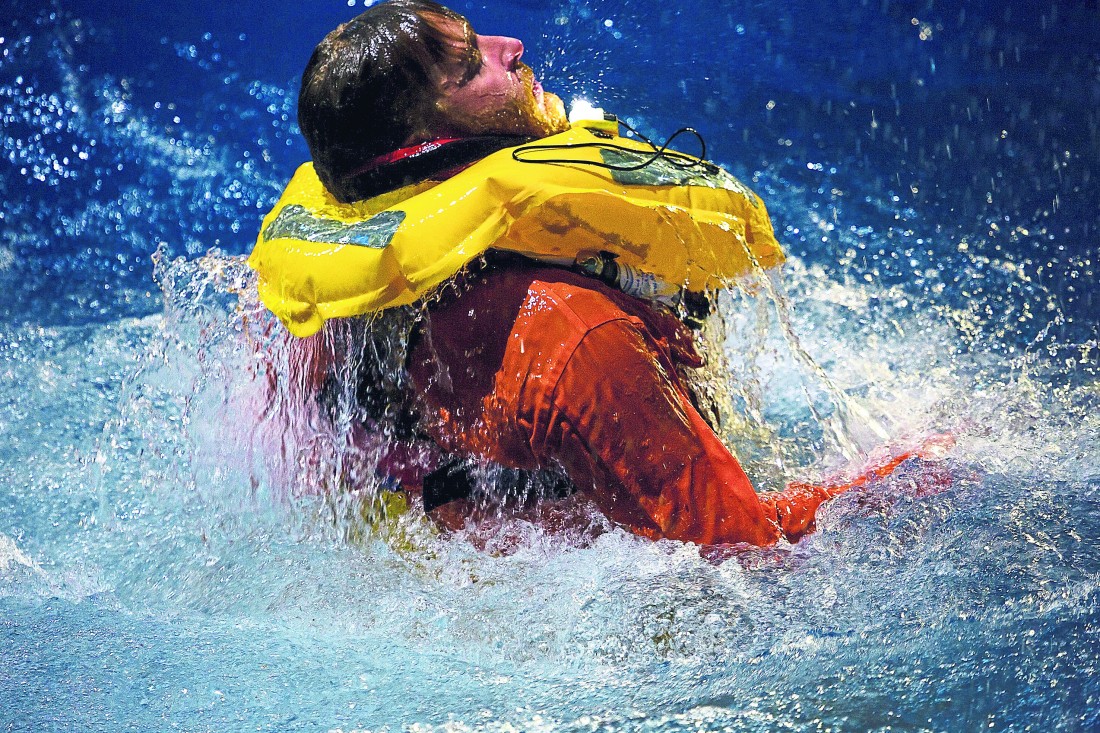FISHING crews are being offered training in dealing with a ‘man overboard’ emergency through a series of classes being held in Falcarragh.
Ireland’s seafood development agency Bord Iascaigh Mhara has partnered with the RNLI to deliver the one-day man overboard experiences. The first of these will take place on January 20 and 21 at the Errigal Training Centre pool in Falcarragh.
The aim of the events is to highlight the importance of wearing a correctly fitted personal floatation device (PFD) and to ensure fishing crews are ready to implement their man overboard recovery plan. Participants will experience first-hand the difference between falling overboard in challenging sea conditions with no floatation device followed by the same incident with their equipment correctly fitted.
Bord Iascaigh Mhara’s Skills Development Director Ian Mannix said that although the conditions are controlled they provide a realistic experience, simulating the impact of how work clothing, oilskins, and boots effects a person’s buoyancy.
“The research clearly highlights the importance of reinforcing the message that wearing a PFD is essential at sea,” said Mr Mannix.
“Having participated in this class myself recently it really brought home the extreme difference wearing a PFD makes. Without a doubt it is essential for surviving at sea. We are delighted to be able to partner with the RNLI in delivering these classes free of charge to Irish fishers. Both Bord Iascaigh Mhara and the RNLI have a shared goal of a safety at sea. The experience compliments and builds upon the existing mandatory three-day safety Ttraining offered by Bord Iascaigh Mhara in both its National Fisheries Colleges in Donegal and Cork and our two mobile coastal training units.”
Recent research (May 2021) commissioned by BIM to understand more about fishers and their views on safety at sea revealed just over half of fishers interviewed said they do not always wear their PFD at sea.
Fishing Safety Manager with the RNLI Frankie Horne delivers the course. He said, “As fishers, one of the most important things we can do is be prepared for an ‘accidental immersion’ whereby we unintentionally end up in the water. RNLI data analysis shows that most fishing fatalities from accident immersion are because we cannot stay afloat or be recovered in time. Between 2008 and 2017 a total of 109 fishers lost their lives in Irish and UK waters while going about their daily work. Of these, 47 fatalities were a result of accidental Immersion. When you go overboard. Ccapable people, become incapable very quickly.”
The free one-day classes will run on Friday and Saturday, January 20 and 21 at the Errigal Training Centre in Falcarragh.










